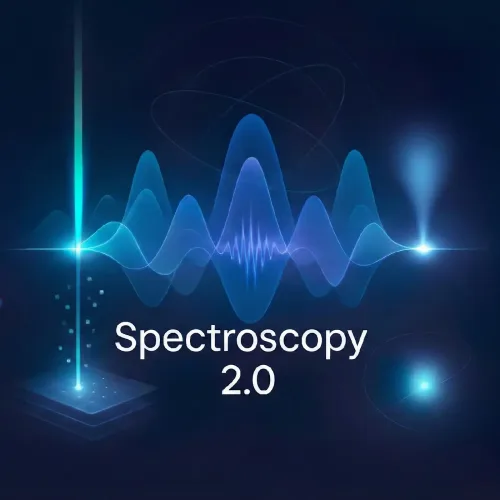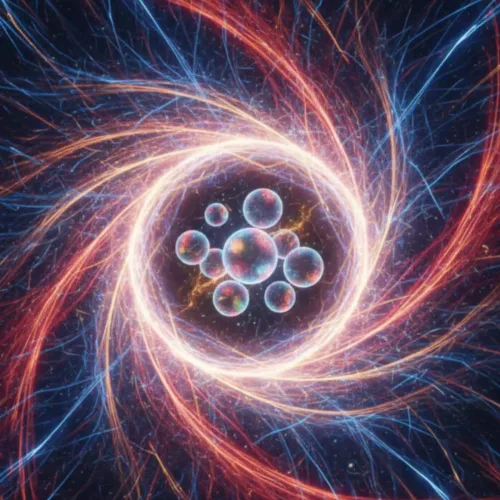When we think about quantum physics, Heisenberg’s uncertainty principle often comes up. This principle has been the basis of quantum mechanics, expressing that we can’t accurately measure both the position and momentum of a particle at the same time. For decades, this principle has been widely accepted. However, some scientists are beginning to challenge this unshakeable principle.
What is giving rise to this skepticism? Could it be that Heisenberg’s principle, once a basic principle of modern physics, may not be as solid as we thought? We will talk about these interesting challenges. We will explain in detail how they emerged and what they could mean for the future of science. Get ready for a journey into this surprising turn of events!
Heisenberg’s Uncertainty Principle

Heisenberg’s uncertainty principle revolutionized our understanding of the quantum world. It states that there is a limit to how precisely we can know both the position and momentum of a particle. The more accurately we measure one, the less precisely we can measure the other. This principle fundamentally is based on the wave-particle duality of matter. Here are the core ideas:
- Wave-Particle Duality: Particles like electrons can show properties of both waves and particles.
- Measurement Limitations: When a measurement is made, the act of measurement itself affects the state of the particle, resulting in inherent limitations in precision.
- Mathematical Representation: The principle is often shown mathematically as Δx * Δp ≥ ħ/2, where Δx shows the uncertainty in position, Δp means the uncertainty in momentum, and ħ is the reduced Planck constant.
These points have traditionally supported the theory; however, new studies are challenging these assumptions.
Recent Developments
Recent research suggests that our traditional interpretation of the uncertainty principle may be outdated. Here is a summary of the most common theories and insights of scientists who are questioning:
1. Quantum Measurements
New techniques allow scientists to measure quantum states with greater accuracy. Researchers are experimenting with methods that could potentially refine or challenge the limits set by the Heisenberg’s principle.
2. Quantum Entanglement
Some researchers believe that particles can be entangled in a way that would allow precise measurements of both their position and momentum.
3. Experimental Results
Some experiments have observed phenomena that seem to conflict with the traditional perception of uncertainty. These observations may suggest that our understanding of quantum mechanics is incomplete.
4. Theoretical Revisions
Physicists are looking at the mathematical foundations of quantum mechanics again. There is ongoing debate over whether the uncertainty principle is a fundamental limit or an approximation.
Experiments Challenging the Theory
A series of experiments have given rise to discussions about the validity of Heisenberg’s uncertainty principle. Here are some notable experiments.
1. Danish Experiment
The Danish researchers used advanced laser technology to measure the particles, without causing as much damage as traditional methods.
2. Cavity Quantum Electrodynamics
This experiment showed that information about both position and momentum could be obtained with less interference than formerly thought.
The results of these studies could be very significant, encouraging the physicists to reconsider the basic principles of quantum mechanics.
Implications for Quantum Physics

Some of the biggest names in physics are adding their voices to this debate. For example, theoretical physicist Sabine Hossenfelder has argued that the uncertainty principle may be less fundamental than earlier thought. She suggests that as our understanding of quantum mechanics grows, it may eventually be replaced by a more precise theory. Similarly, Nobel laureate Gerard ‘t Hooft has pointed out that although the principle works well for most quantum systems, there may be special cases where it doesn’t work. This idea has inspired ongoing research into the nature of particles, waves, and the limits of quantum theory.
Will we ever replace Heisenberg’s uncertainty principle? It is too early to say for sure. Most physicists agree that the principle will stay important for a long time. However, as more evidence develops, it is possible that it could be revised or even replaced by a more thorough theory.
It is clear that the principle is no longer unbreakable. Physicists are willing to reconsider old ideas, and Heisenberg’s uncertainty principle is no exception to this process. Whether these are minor or major changes, the future of quantum mechanics could look quite different.
Conclusion
As scientists continue to put doubt on Heisenberg’s Uncertainty Principle, we find ourselves at the beginning of a new era of quantum understanding. While this principle serves as a fundamental principle in physics, questioning its absolute validity opens up exciting new fields of scientific study. The questions raised by recent research force us to reexamine not only the principles of quantum mechanics, but also the technologies that come from them.
In conclusion, as the journey through quantum physics evolves, perhaps we are on the verge of understanding not only “what” exists at the particle levels, but also “how” and “why” those particles behave the way they do. As we stand at this crossroads of inquiry and innovation, the future of physics looks bright, even if it is uncertain.




